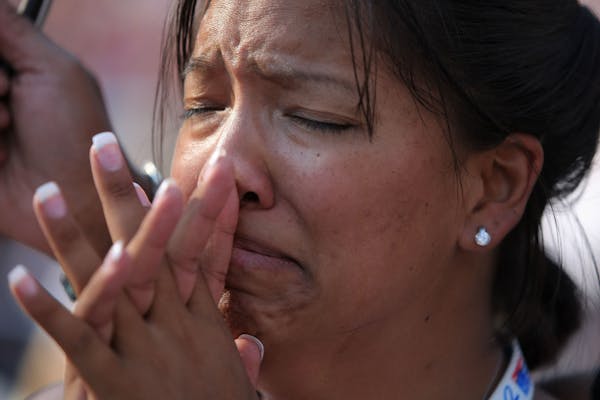Since it was established as a federal holiday in 1986, the Martin Luther King Jr. holiday has properly become a time to look back on the civil rights movement and assess the state of race relations in our country.
But there is another dimension to the holiday. The day set aside to honor King reminds us that in a democracy, ordinary citizens ought to be able to encourage or inspire important change, even when they hold no formal political power.
King was one of the most influential Americans in our nation's history. Yet unlike so many others we honor, he never served as an elected official, never led a government institution, never directed troops in battle.
He and the activists he rallied and marched with embodied the true spirit of democracy -- that someone need not be part of government in order to direct government.
Indeed, while King will always remain the leading symbol of the civil rights movement, we must remember that its accomplishments and glory belong to thousands of Americans who marched, staged sit-ins, knocked on doors and rallied for change.
Ultimately, millions of Americans responded to the movement and cemented its changes by voting differently or changing their private behavior.
That kind of sweeping political change from below is an element of our democracy that Americans can be proud of, yet even the most patriotic citizens can overlook it, particularly as we work our way through the lengthiest and most expensive presidential campaign in our history.
The coverage of the campaign will emphasize the role of representatives and elections, but for many of the greatest changes in our history -- including ending slavery and expanding the right to vote -- elected leaders were late to the party.
They passed the amendment, signed the bill, or enforced the change, but did not initiate it.
The King holiday completes a celebration of our democracy. On Veterans Day and Memorial Day, we honor the men and women in uniform who protected our freedom from external threats. On President's Day we celebrate those whom the people elected to guide the country.
The King holiday (like Labor Day, if we recall its origins) completes the celebration by remembering the ordinary citizens who have struggled and sometimes died to fulfill the promise of the beautiful "We the People" rhetoric written into our nation's Constitution.
The King holiday is not just about King himself, or even the expanded pantheon of the civil rights movement's heroes.
It is for any American who sparked change from outside the halls of power: Thomas Paine, Henry David Thoreau, Susan B. Anthony, John Muir, William F. Buckley, Cesar Chavez -- and for all those who worked alongside them, rallied behind them or led their own struggles.
It also reminds us to respect those Americans seeking to spark change today, for the next great change might come from one of those movements -- the Tea Party, Occupy Wall Street, the prolife movement, GLBT activists, PETA. Chances are you grimaced at the mention of at least one of those groups, just as many Americans bitterly opposed the civil rights movement, abolitionists or suffragettes in their day.
Most of the contemporary movements will not succeed, nor deserve to. For every revered movement from our history, there are many others that are forgotten or reviled (frequently when they rejected democracy by turning violent or using government power against their opponents).
Honoring our ultimately successful movements reminds us also to have faith in the power of our democracy -- in ourselves -- to eventually embrace the best ideas and reforms.
The best way to commemorate the King holiday and celebrate our ordinary heroes is to get involved, and to use your freedom to make our country better in whatever way you see fit.
Promote a change you believe in; fight against a change you feel is dangerous. But be part of the struggle, because -- as King understood so well -- that is what it means to be a part of American democracy.
* * *
Scott Hvizdos lives in Richfield.
Ukraine aid vote is a domestic and geopolitical inflection point



